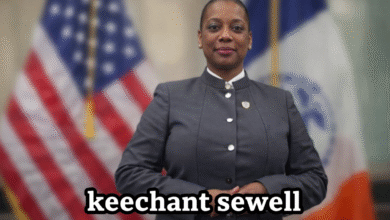Justin Waller Net Worth: From Humble Beginnings to Millionaire Success

In the world of modern entrepreneurship, few stories are as compelling as that of Justin Waller. A Louisiana native with a relentless work ethic and a passion for building, Waller has carved out a respected name in the construction and real estate industries. With an estimated net worth of $12 million, Justin Waller represents the epitome of the American dream—rising from modest beginnings to become a successful entrepreneur.
This article takes an in-depth look at justin waller net worth, his business ventures, and the personal values that continue to drive his success in 2024.
Early Life and Foundation of Success
Born in 1974 in Louisiana, Justin Waller grew up in a working-class environment that shaped his strong sense of discipline and perseverance. He learned early on that hard work and determination were essential ingredients for achieving long-term success.
After completing high school at Denham Springs High School, he pursued higher education at the University of Louisiana. His educational journey provided him with foundational knowledge, but his passion for construction and hands-on experience would become the true catalysts for his future achievements.
The Rise of RedIron Construction
The cornerstone of justin waller net worth is his thriving business, RedIron Construction. Based in Baton Rouge, Louisiana, the company started small—with just a few employees and a pickup truck. Through Justin’s sharp business acumen and dedication to excellence, the firm has grown into a multimillion-dollar enterprise.
RedIron Construction specializes in metal buildings and complex construction projects. It has become known for quality craftsmanship and reliability, which has helped the business earn millions in revenue. In 2024 alone, RedIron reported a whopping $10 million in earnings, a clear reflection of Waller’s expertise and leadership.
Strategic Real Estate Investments
Beyond construction, another key component of justin waller net worth comes from his successful ventures in luxury real estate. Waller owns several high-end properties in Baton Rouge and Miami. These real estate investments have not only diversified his income sources but also significantly boosted his overall wealth.
His ability to identify profitable opportunities in real estate markets has allowed him to build a robust investment portfolio. His properties serve as long-term assets that continue to increase in value, adding to his financial stability.
Business Philosophy and Controversial Opinions
Justin Waller has been vocal about his approach to personal finance. Unlike traditional financial advisors, he discourages the use of consumer loans and is critical of certain financial products. While his stance may spark debate, many of his followers admire his authenticity and commitment to financial discipline.
Interestingly, Waller’s viewpoint contrasts with the reality for many consumers who rely on services like direct deposit loans in minutes to make ends meet. This divergence of opinion has sparked conversation online, making him a thought-provoking figure among his fan base.
Justin Waller’s Family and Personal Life
Despite his many professional commitments, Waller remains deeply connected to his family. Married to Alice Waller, the couple has built a strong relationship over more than a decade. Together, they have two children, and family life remains at the center of Justin’s priorities.
Justin frequently shares how family has kept him grounded and motivated throughout his career. He values quality time with his loved ones and often attributes his success to the unwavering support of his wife and children.
Vision for the Future
Looking ahead, Justin Waller is focused on driving innovation within the construction industry. He aims to integrate advanced technologies and modern methodologies into his business operations. With an eye on global expansion, Waller plans to extend RedIron’s influence beyond regional markets.
Waller is also passionate about mentoring aspiring entrepreneurs. He shares insights and life lessons through interviews and online platforms, encouraging others to pursue success through hard work and innovation.
Justin Waller: A Role Model in Business
The story behind justin waller net worth isn’t just about money—it’s about values, vision, and determination. He serves as a role model for aspiring entrepreneurs, proving that success doesn’t require shortcuts—only focus, grit, and perseverance.
His journey from a blue-collar worker to a self-made millionaire is a blueprint for others seeking to turn their dreams into reality. Justin Waller’s business success, grounded in integrity and innovation, makes him a noteworthy figure in today’s competitive marketplace.
FAQs About Justin Waller
Q1: What is Justin Waller’s net worth in 2024?
A: As of 2024, justin waller net worth is estimated at $12 million, with income generated from construction, real estate, and entrepreneurial ventures.
Q2: What is RedIron Construction?
A: RedIron Construction is a Louisiana-based company founded by Justin Waller, specializing in metal buildings and general construction projects.
Q3: Where did Justin Waller go to school?
A: He graduated from Denham Springs High School and later attended the University of Louisiana.
Q4: What cities does he own property in?
A: Justin Waller owns luxury real estate in Baton Rouge, Louisiana, and Miami, Florida.
Q5: Is Justin Waller active online?
A: Yes, he often shares business advice and personal experiences through interviews and social media, inspiring aspiring entrepreneurs.
Conclusion
To sum up, justin waller net worth is not merely a figure—it’s a reflection of years of dedication, strategic thinking, and a relentless drive to succeed. From founding RedIron Construction to making smart real estate investments, Waller’s rise is built on a strong foundation of values and visionary leadership.
As he continues to expand his influence and empower others, Justin Waller stands as a beacon for modern entrepreneurship, blending business success with personal integrity and family values.
Read also:Rick Macci Net Worth: Exploring the Wealth of a Tennis Coaching Icon



